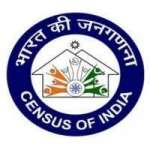CURRENT AFFAIRS
Get the most updated and recent current affair content on Padhaikaro.com
CENSUS & NPR
- Vaid's ICS, Lucknow
- 11, Jan 2022

In News
- The first phase of the census and collection of details to update the National Population Register (NPR) have been postponed at least till September 2021.
Background
- The Registrar General of India (RGI) had in December 2021 informed the States that freezing of boundaries of districts, sub-districts, tehsils, talukas, police stations etc. has been postponed till June 2022.
- Freezing of boundary limits of administrative units, at least three months prior, is a prerequisite for conducting the census.
- Even if the RGI issues an order in June 2022 to freeze the boundaries again, the exercise can take place only in September 2021.
About National Population Register:
- It is a Register of usual residents of the country.
- It is being prepared at the local (Village/sub-Town), sub-District, District, State and National level under provisions of the Citizenship Act 1955 and the Citizenship (Registration of Citizens and Issue of National Identity Cards) Rules, 2003.
- NPR was first done in 2010 and was later updated in 2015 when it was linked with Aadhar.it already has a database of 119 crore residents.
- It is mandatory for every usual resident of India to register in the NPR.
- A usual resident is defined for the purposes of NPR as a person who has resided in a local area for the past 6 months or more or a person who intends to reside in that area for the next 6 months or more.
- The Registrar General India shall act as the “National Registration Authority”, it is also the country’s Census Commissioner.
- Objective:
- To create a comprehensive identity database of every usual resident in the country. The database would contain demographic as well as biometric particulars.
- Significance :
- NPR data helps identify the demographics of actual residents who will be direct beneficiaries of any schemes launched in the area.
- The NPR data will help the government design and adapt schemes like Ayushman Bharat, Jandhan Yojna, or medium of instruction in schools as per the current demographics, thus making the schemes more effective.
- Opposition:
- Many Opposition-ruled States have opposed the updation of the NPR due to its link with the proposed National Register of Citizens (NRC) and the yet to be implemented Citizenship Amendment Act (CAA).
What is Census?
- The Census is the enumeration of the population of the country and it is being conducted at an interval of 10 years.
- It was first started under British Viceroy Lord Mayo in 1872.
- It helped in framing new policies, government programs to uplift areas of improvement in the community.
- The first synchronous census in India was held in 1881.
- The responsibility of conducting the decennial Census rests with the Office of the Registrar General and Census Commissioner, India under the Ministry of Home Affairs, Government of India.
- In the Census, data is collected on demographic and various socio-economic parameters like education, SC/ST, religion, language, marriage, fertility, disability, occupation and migration of the individuals.
Difference between NPR and the Census
- The process of NPR and Census will begin simultaneously, the two databases are not the same.
- The decennial census is the largest single source of a variety of statistical information on the different characteristics of the people of India.
- While NPR only contains demographic information, more details are required for the census like information on demography, economic activity, literacy and education, and housing and household amenities among others.
United Nations Framework Convention on Climate Change (UNFCCC)- Key Points
- The United Nations Conference on Environment and Development is also known by other names like the Earth Summit, the Rio Summit, or the Rio Conference.
- Two other outcomes of the Rio Conference were
- Convention on Biological Diversity and
- the United Nations Convention to Combat Desertification.
About UNFCCC:
- It is a multilateral treaty governing actions to combat climate change through adaptation and mitigation efforts directed at control of emission of GreenHouse Gases (GHGs) that cause global warming.
- It is considered the parent treaty of both the Kyoto Protocol (1997) and the Paris Agreement (2015).
- UNFCCC entered into force on 21st March 1994 and has been ratified by 197 countries.
- India ratified the UNFCCC in 1993.
- Nodal Agency in India:
The Ministry of Environment, Forests and Climate Change (MoEFCC) acts as the nodal agency for UNFCCC in India.
Facts for Prelims
Zebrafish
Why in News?
Nerve-end connections known as synapses form is highlighted in a recent study of Purkinje neurons in the cerebellum of knockout zebrafish.
More in News
- Zebrafish are transparent and neuron development in larval zebrafish can be observed from day to day by injecting a dye or by engineering the fish to express fluorescent proteins.
- It has been observed that knocking out a particular protein known as the gap junction delta 2b (gjd2b) in the cerebellum of zebrafish affected levels of the enzyme CaMKII.
- Levels of CaMKII were seen to increase in the Purkinje neurons in the cerebellum.
About Zebrafish
- Scientific Name: Danio rerio
- It is a tropical freshwater fish belonging to the minnow family (Cyprinidae) of the order Cypriniformes.
- Habitat/Range: Native to rivers and streams of South Asia.
Features
- It is a popular aquarium fish.
- It is about 4 cm long and has dark-blue and silvery longitudinal stripes.
- IUCN Red List Status: Least concerned